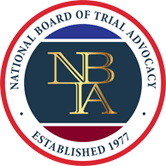Albuquerque Oil and Gas Injury Lawyer
Working on an oil rig or a gas pipeline is an extremely dangerous occupation. Most workers are well aware of the danger and take appropriate precautions. When they don’t, the results are devastating.
Albuquerque Oil and Gas Injury Attorney
At the Branch Law Firm®, our attorneys are very familiar with the oil and gas industry. If you or a family member has been hurt on a gas pipeline or oil rig, call the Branch Law Firm® to talk to an Albuquerque personal injury attorney who understands.
Workers We Represent
Our clients in oil and gas cases include:
- Oil rig employees
- Gas pipeline employees
- Roughnecks
- Drilling well employees
- Roustabouts
Our Albuquerque wrongful death attorneys also represent the families of gas and oil industry workers who lost a loved one.
Gas Pipeline and Oil Rig Catastrophes
No doubt about it–jobs on platforms, oil rigs, and pipe decks are dangerous. Every day, people work with heavy equipment and uncovered oil machinery. Even though these workers are skilled, some errors will happen, like oil spills and rig falls. Oil rig and gas pipeline accidents rarely result in minor injuries. Oil and gas are flammable and explosive, respectively, and these operations use heavy equipment. When injuries occur, they are severe, if not fatal. Our workers’ compensation lawyers can get you the help you recover lost damages if you have been in a gas pipeline or oil rig accident on the job.
Dangers of Working in Oil and Gas
Working in the oil and gas industry in New Mexico involves exposure to numerous hazards that can pose significant risks to workers’ safety and health. Drawing from information provided by the Occupational Safety and Health Administration (OSHA), we can see some of the key dangers include:
- Confined space hazards. Risks associated with working in restricted and confined areas not designed for continuous occupancy.
- Fire and explosions. Handling flammable materials (unavoidable in some occupations) increases the risk of fires and explosions.
- Falls. Working at heights without adequate fall protection can lead to severe injuries.
- Exposure to hazardous chemicals. Workers may be exposed to various harmful chemicals, risking their health.
- Vehicle collisions. The operation of heavy machinery and transportation vehicles can lead to accidents.
- High-pressure lines and equipment. Working with or near high-pressure lines and equipment poses a risk of accidents and injuries.
These hazards underscore the need for rigorous safety protocols and protective measures to minimize the risks faced by oil and gas workers.
Injuries from oil and gas errors can include:
- Crush injuries, like a crushed foot or crushed finger
- Broken bones
- Dismemberment
- Decapitation
- Toolpusher injury
What To Do When You Suffer an Injury in the Oil and Gas Industry
After sustaining an injury at work in the oil and gas industry, victims can take several steps soon after the incident occurs to not only protect their health but also protect any potential claim against another party. Regardless of whether or not you think you will move forward with a workers’ compensation claim or a personal injury lawsuit against another party, the following steps can help:
- Seek medical treatment. The importance of going to the hospital or your doctor oil or gas injury occurs cannot be overstated. Immediate medical care not only helps increase a person’s ability to recover, but it also helps draw a strong connection between the incident and any injuries that do arise.
- Report the incident. In New Mexico, work injuries have to be reported to an employer within 15 days from when they occur, but we encourage you to report the injury much sooner than this. Additionally, there are separate deadlines for filing the actual workers’ compensation claim, but these deadlines can be confusing. Please speak to an attorney about the timelines for filing your specific claim.
- Document and collect evidence. Keep any evidence related to your oil or gas injury. This includes damaged clothing, medical records, photographs or video surveillance of the incident, as well as any contact information of eyewitnesses.
- Call a work injury lawyer. You should reach out to a skilled personal injury lawyer with experience handling these complex claims. Injuries involving the oil and gas industries become complex very quickly, particularly when dealing with the companies involved, their legal teams, and their insurance carriers.
- Continue your medical care. Continue all medical treatments recommended by your treating physician. Failing to do so could seriously jeopardize your ability to continue receiving much-needed compensation.
Workplace Safety Measures in the Oil and Gas Sector
The oil and gas industry brings plenty of challenges, which means employees, their employers, and any third parties involved in the oil and gas extraction process must remain safety conscious at all times. Some of the best safety measures for the oil and gas sectors include:
- Regular inspections and maintenance. Regularly conducting inspections and maintaining equipment can prevent malfunctions that may lead to accidents. This involves using inspection management systems and asset & equipment maintenance programs to ensure operational integrity (Field Eagle).
- Preventative maintenance. Implementing a proactive maintenance strategy can significantly reduce the likelihood of equipment failure, potentially leading to hazardous incidents.
- Safety training and certifications. Providing workers with comprehensive safety training and ensuring they hold relevant certifications, such as those offered by the American Petroleum Institute (API), can greatly enhance on-site safety. This includes familiarizing workers with “API’s Rules to Live By,” which highlight critical safety hazards and preventive measures.
- Technological integration. Utilizing safety management software and IoT devices for real-time monitoring and incident reporting has been shown to enhance safety measures. Technologies that allow for data centralization and the digitalization of inspection forms and checklists can streamline safety protocols and improve response times in case of an emergency.
- Collaboration with emergency services. Establishing strong relationships with local emergency response services ensures quick and effective responses to incidents, further safeguarding workers and facilities.
- Personal protective equipment (PPE). Ensuring that all workers are equipped with the necessary PPE can drastically reduce the risk of injuries. This includes everything from helmets and gloves to specialized equipment or clothing designed to protect against specific hazards encountered in the oil and gas industry (OSHA).
- Mental health and suicide prevention programs. Addressing the mental well-being of workers is as crucial as protecting their physical health. Programs aimed at suicide prevention and mental health support contribute to a safer and more supportive workplace environment.
Individuals can report unsafe working conditions to the New Mexico Environment Department. Employees have a right to file a complaint and can request an inspection if they believe they are operating in unsafe or unhealthy work conditions. Individuals can file a complaint by:
- Calling 505-476-8700 and asking for the compliance officer on duty to discuss the complaint.
- Emailing the information or complaint to [email protected].
- Submitting the complaint through the federal online complaint form.
When Should You File Your Claim?
Oil and gas injuries need to be reported right away to an employer. However, the actual deadline for filing a claim will depend on how the case proceeds. Workers’ compensation claims have different reporting deadlines, ranging from approximately one year to two years after the incident occurs.
Often, individuals harmed in an oil or gas injury are able to file a civil personal injury claim against the at-fault party. In these situations, the personal injury statute of limitations in New Mexico will apply, and this dictates that injury claims must be filed within three years from the date the injury occurs. Failing to file a lawsuit within this three-year time frame will likely result in the injury victim becoming unable to recover any compensation for their losses.
How Can We Help?
With 40 years of litigating oil and gas cases, our Albuquerque personal injury lawyers understand the oil and gas industry. We know how these disasters occur, and we have the investigative ability to figure out how something happened, and what kind of compensation is available to the family. Furthermore, we understand what an injury or death does to a family. Insurance companies will try to minimize your pain and suffering. Contact us today to get the legal advice from our experts.
 Knowledge Experience Compassion Service
Knowledge Experience Compassion Service 






